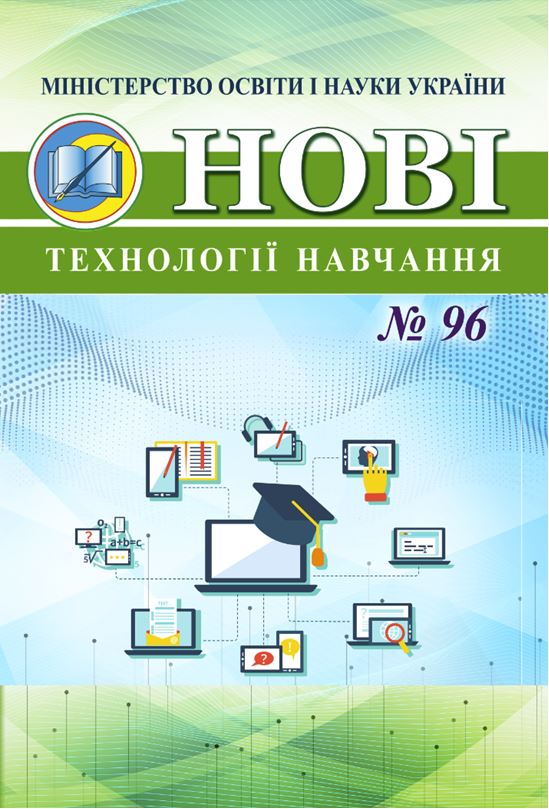Aspects of work with gifted youth, relevant in the conditions of distance education
DOI:
https://doi.org/10.52256/2710-3560.2022.96.14Keywords:
gifted youth, distance learning, educational environment, information technologies, development of abilitiesAbstract
Socio-political, sanitary-epidemiological, technogenic and other challenges of modern times have had a significant impact on the content and forms of organization of modern education, which in turn, in particular, led to the need for scientific research and substantiation of new forms and methods of working with gifted youth in conditions of limited personal communication of the participants of the educational process, difficult access to learning resources and problems with ensuring effective control over the process and evaluation of learning results.
In particular, the impossibility or significant limitation of face-to-face training led to the need for the development of remote work technologies and the development of the abilities of gifted youth, the need to determine the principles of the organization of the learning process, in particular, of gifted youth, based on the achieved level of development of modern information and communication technologies, the possibilities of using and developing related pedagogical technologies of learning, a separate important direction of developmental learning is the provision of full-fledged distance learning for everyone who needs and wants it.
In the process of carrying out the research, based on its content, four main aspects of work with gifted youth, relevant in the conditions of distance learning, were singled out, namely:
- Search and research aspect: development, implementation, research, approbation of pedagogical technologies of distance learning and development of abilities of gifted youth (continuation of previously started research).
– Concrete-scientific or subject aspect: determination of psychological and pedagogical features of teaching mathematics as a means of mastering physics.
– The aspect of the analysis of the achieved results, namely: the analysis of the experience and results of the participation of teams of Ukrainian schoolchildren in international competitions held remotely.
– Generalizing aspect: determination of the principles of formation of an educational environment for remote learning of gifted youth (within the framework of a specialized educational institution).
As a result of the analysis and generalization of the research results, the following conclusions were drawn:
- The educational environment of the educational institution should be formed on the basis of the appropriate pedagogical system of the institution, taking into account the peculiarities of its functioning, the prospects of certain educational areas and the educational needs of the contingent.
- Distance (mixed) learning should be considered as a separate form of organization of the learning process, which in some places is carried out by its own methods, means and methods, with the use of specially developed models, technologies, etc. Accordingly, an educational environment focused on remote (mixed) learning has a number of features, conditions and components that are not characteristic of classical learning, the formation of which requires the development of special approaches, methods, technologies, etc.
- Methods of distance (mixed) education require increased and specially organized control over the process and effectiveness of education.
- The formation of an educational environment favorable for the implementation of distance (mixed) learning is inextricably linked to the purposeful use of educational electronic platforms, the creation and use of which requires urgent scientific substantiation and possible standardization.
- The described aspects, features and regularities of the formation of an educational environment for remote (mixed) learning are relevant and characterize the processes taking place in the modern education system as a whole, in particular, it concerns the digitalization of educational processes.
Downloads
Published
How to Cite
Issue
Section
License
Copyright (c) 2023 Борис Кремінський, Світлана Мистюк, Оксана Вернидуб, Тетяна Гінетова

This work is licensed under a Creative Commons Attribution-NonCommercial-ShareAlike 4.0 International License.
Із зазначенням авторства - Некомерційна - Розповсюдження на тих самих умовах 4.0 (CC Attribution-NonCommercial-ShareAlike 4.0)









